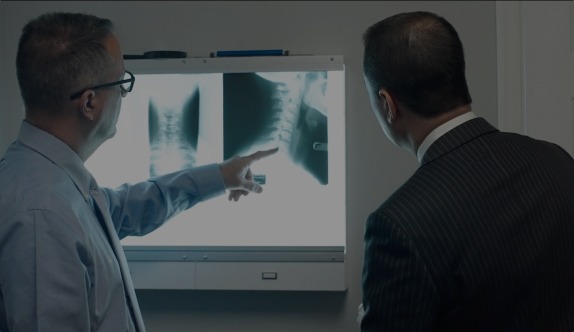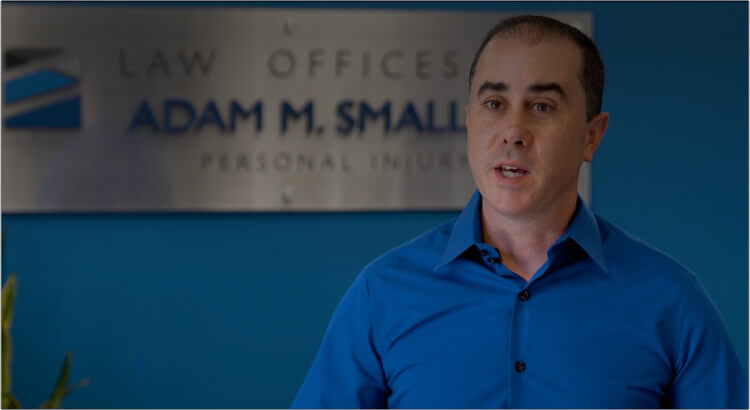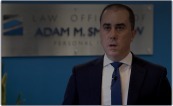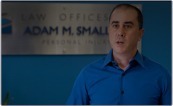To prove nursing home abuse in Maryland, gather evidence such as medical records, witness statements, and photographs of injuries. Identifying signs of abuse and neglect early is crucial for building a strong case.
Common signs include unexplained injuries, sudden behavioral changes, and poor living conditions. Documenting these signs and reporting them to the appropriate authorities helps protect the victim and establishes a basis for legal action.
A nursing home abuse lawyer in Joppatowne can handle your family’s case professionally. Continue reading to learn more.
Let Adam Smallow Injury Lawyers fight for your recovery. Contact us today.
FREE CASE EVALUATIONGathering Evidence to Prove Nursing Home Abuse in Maryland
Proving nursing home abuse requires a comprehensive collection of evidence to support claims of neglect or mistreatment. Building a strong case involves various steps and types of evidence to demonstrate the abuse occurred and identify those responsible.
Identifying Signs of Nursing Home Abuse
First, recognize the signs of elder abuse, which can range from physical injuries to emotional and psychological changes. Common indicators include:
- Unexplained bruises, cuts, or burns
- Sudden weight loss or dehydration
- Poor hygiene or unsanitary living conditions
- Emotionally withdrawn or sudden behavioral changes
- Bedsores or pressure ulcers
Types of Evidence to Collect
Once signs of abuse are identified, you can gather evidence to substantiate the claims. Important types of evidence include:
- Medical records: Document any injuries or health issues resulting from abuse or neglect.
- Photographs: Take clear and dated pictures of injuries, living conditions, and any other signs of mistreatment.
- Witness statements: Collect testimonies from other nursing home residents, staff members, or visitors who have observed the abuse.
- Personal journals: Maintain a detailed record of incidents, including dates, times, and descriptions of the abuse.
- Financial records: Look for unexplained financial transactions or signs of financial exploitation.
- Official reports: Include reports filed with state agencies or nursing home regulators.
Report the Abuse to the Authorities
After collecting evidence, report the abuse to the appropriate authorities, such as the Maryland Department of Health’s Office of Health Care Quality (OHCQ) and local law enforcement. Properly documenting and reporting these incidents not only helps build a case but also ensures the safety of the victim and other residents.
A personal injury lawyer can gather and organize evidence to prove nursing home abuse. They can take the necessary legal steps to seek justice and fair compensation for your loved one’s injuries and losses.
Applying the Four Elements of Negligence in Nursing Home Abuse Cases
Proving negligence in nursing home abuse cases involves demonstrating four key elements: duty, breach, causation, and damages. Establishing these elements builds a strong legal case against the responsible parties.
Duty of Care
Nursing homes and long-term care facilities have a legal duty to provide a safe and adequate standard of care to their residents. This duty includes ensuring residents receive proper medical attention, personal care, and a safe living environment.
Nursing home staff members and administrators must act in the best interests of the residents and comply with state and federal regulations governing nursing home operations.
Breach of Duty
A breach of duty occurs when the nursing home facility or its staff fails to meet the required standard of care. Examples of breaches include neglecting a resident’s basic needs, failing to provide necessary medical treatment, or allowing unsafe conditions to persist. Documenting instances where the nursing home deviated from its obligations is necessary for establishing a breach of duty.
Causation
Causation links the breach of duty directly to the harm suffered by the resident. It must be shown that the nursing home’s failure to provide adequate care directly resulted in the resident’s injuries or worsening condition. Establishing causation often involves medical expert testimony and detailed records demonstrating how the breach led to specific harm.
Damages
Damages refer to the physical, emotional, and financial harm suffered by the resident due to the nursing home’s negligence. These damages can include medical expenses, pain and suffering, emotional distress, and any other losses incurred as a result of the abuse or neglect. Thorough documentation of all damages is essential for securing compensation in a negligence claim.
By proving these four elements—duty, breach, causation, and damages—victims and their families can build a compelling case for negligence in nursing home abuse situations. This legal framework ensures accountability and provides a pathway for obtaining justice and compensation.
Additional Considerations for Proving Nursing Home Abuse
Besides understanding the key elements of negligence, several other factors play a vital role in proving nursing home abuse cases.
Statute of Limitations in Nursing Home Negligence
There is a specific timeframe within which you must file a lawsuit for nursing home abuse in Maryland. This is known as the statute of limitations. Generally, victims have three years from the date of the injury to file a nursing home lawsuit, per Md. Cts. & Jud. Proc. Code § 5-101. It’s important to act promptly to ensure the case is filed within the legal time limits.
Role of Expert Witnesses
Expert witnesses, such as medical professionals or elder care specialists, can provide crucial testimony to support the case. They can explain how the standard of care was breached and how this breach directly caused the resident’s injuries. Their expert opinions often carry significant weight in court.
If you need legal representation, schedule your Road to Recovery Consultation.
START YOUR CASEHow a Lawyer Can Help the Family in Nursing Home Abuse Cases
A nursing home abuse attorney can provide advice on the legal options available and guide your family through the complex legal process. Lawyers help in gathering and preserving evidence, ensuring that medical records, witness statements, and other crucial documentation are properly collected and maintained.
Additionally, personal injury attorneys handle all communications with the nursing home and insurance companies, protecting the family from potential intimidation or manipulation. They also coordinate with expert witnesses, such as medical professionals, who can provide critical testimony to strengthen the case.
By filing necessary legal documents and representing the family in court, a lawyer ensures that the case is presented effectively and professionally. Their goal is to secure compensation for medical expenses, pain and suffering, and other damages, providing the family with financial relief and a sense of justice for their loved one.
Get Help Proving Nursing Home Abuse for Your Loved One Today
Adam Smallow Injury Lawyers wants to help your family go From Hurt to Help®. They work on contingency, so they only get paid when you win.
Call today for a free case consultation.
Take the first step towards justice. Contact Adam Smallow Injury Lawyers
FREE CASE EVALUATION





